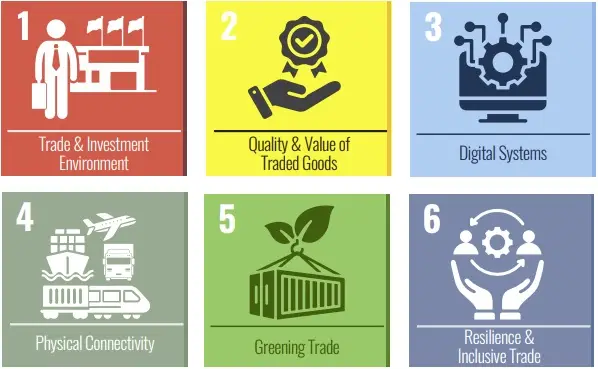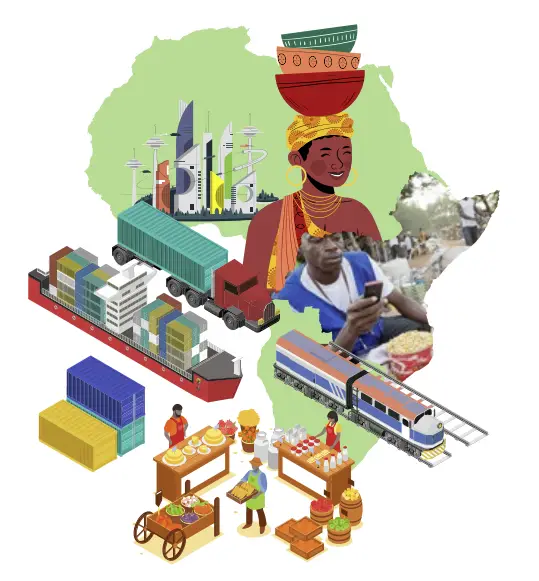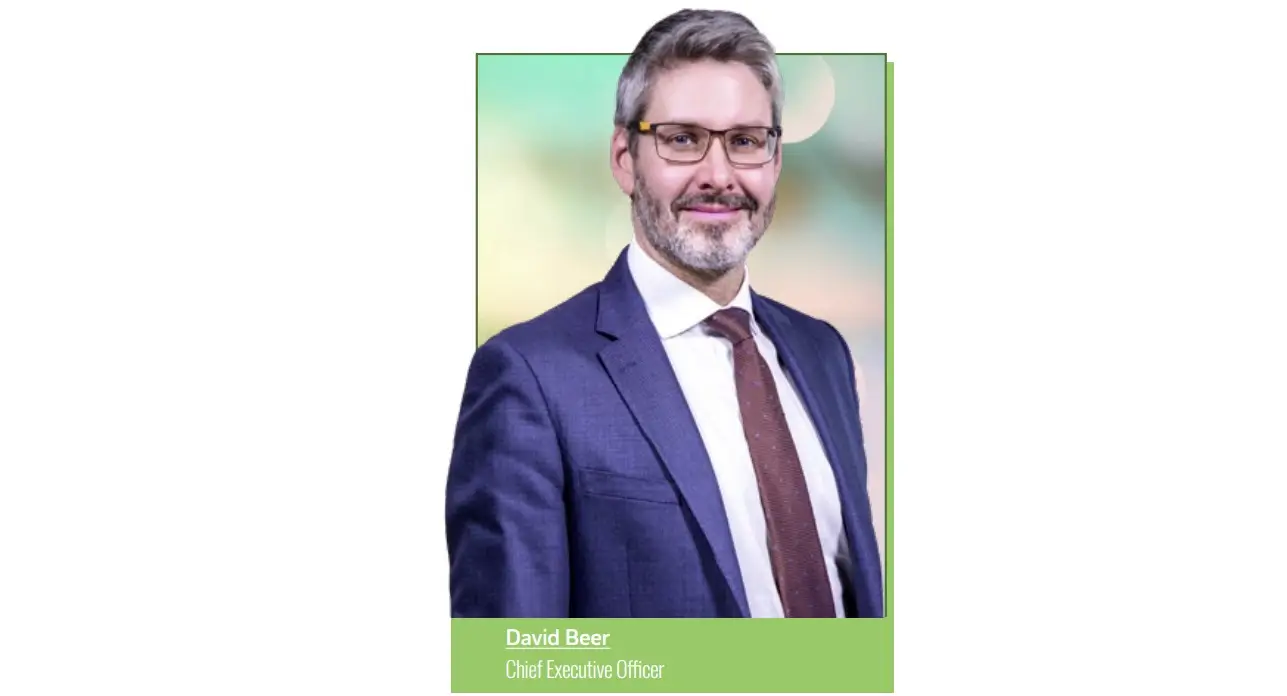This has been a year of new beginnings. In January, in a ceremony presided over by the Secretary General of the African Continental Free Trade Area (AfCFTA), His Excellency Wamkele Mene, TradeMark East Africa became TradeMark Africa (TMA). This move reflects TMA’s success in delivering results in the Horn of Africa, Southern Africa and West Africa (where TMA has now opened a full office, in Accra) and will continue to grow geographically; but importantly also, the continent is coming together with a renewed political momentum to drive intra-African trade across the region, an ambition that TMA is firmly committed to supporting.
This is one strand of the new seven-year strategy that TMA developed this year. Our Strategy 3 spanning July 2023 to June 2030, aims to Build Sustainable and Inclusive Trade for Africa. We will achieve this through focusing on six portfolios:

Strategy 3 builds on TMA’s significant track record and credibility in delivering results for clients in Government and the private sector over the last decade and a half. For example, our support for the Uganda electronic single window has reduced clearance time by 79% since 2014, and halved the cost of certification. Meanwhile, both the Tanzania Revenue Authority and livestock traders (the country contains the second highest volume of livestock in Africa) have benefited from the automation of licences, permits and trading certificates, meaning that it now takes just one hour to issue a livestock permit that used to take up to two weeks. And in Somaliland, a new 22.5km road that bypasses the congested town of Hargeisa, and which leads from Berbera Port to the Ethiopia border, has reduced turnaround times by an average of 39%, or 3 hours less than the previous route.
We will maintain our focus on the areas where we have seen the strongest results, while addressing future development challenges and opportunities. Let me name three of the latter: firstly, the growing importance of climate-related trade restrictions and their potential impact on our clients’ economies. We saw that COP28 held for the first time ever a trade day, underscoring trade’s crucial role in addressing one of the world’s largest future challenges. We aim to position Africa as a pioneer in low carbon trade, and therefore as a highly competitive player in the global trade economy of the coming decade.

Secondly, the trade infrastructure gap is wide and growing. It cannot be filled through grant finance or sovereign budgets alone. TMA this last year, therefore, created a commercial arm – Trade Catalyst Africa – which will work with Development Finance Institutions, regional Development Banks and others, to leverage greater multiples of finance than TMA could generate on its own, in order to deliver critical trade finance and connectivity within Africa. We are excited by the possibilities of applying ethical impact investment models in this area. I am delighted to welcome on board its first CEO, Mr Duncan Onyango.
And lastly, the digital revolution is in full swing. TMA is determined to ensure that the technological innovations that are emerging, will benefit governments, major businesses, and those at the lower end of the scale. We were proud this last year to launch alongside the chambers of commerce in Burundi, Kenya, Rwanda and Tanzania, iSOKO, an e-commerce app that makes it easier for small traders and businesses to identify markets, know prices, and grow their businesses. Now working in five countries, with over 10,000 users, iSOKO aims to provide a full package of free support – including basic bookkeeping services and links to aggregation.
Yet, through the name change and our expansion to 14 countries, up from five when we began in 2010, our core mission remains steadfast: fostering prosperity in Africa through increased trade. Our vision is underlined by the fact that trade must be sustainable and inclusive. The key has always been to recognise the specific obstacles to performing trade, and to foster collective solutions; whether this is removing non-tariff barriers such as roadblocks or surplus customs procedures on trade corridors, harmonising standards within a trading bloc, enhancing border infrastructure to speed up crossings, or educating women cross-border traders in business skills. Each initiative is a strategic step in TMA’s ongoing commitment to making a tangible difference in Africa’s trade landscape. I could go on, but please read this report and judge for yourself.
Discover more about TMA’s digital initiatives in the 2022/2023 Annual Report.


